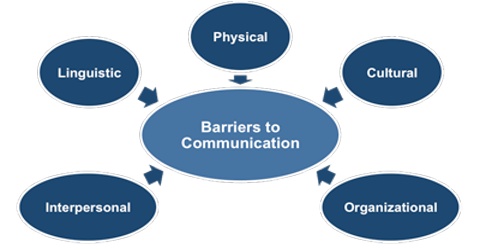Some Informal Barriers in Communication Process:
There are several words that carry different meanings and often, people get confused with these words and interpret these differently due to the difference in their educational and social backgrounds. These are said Informal Barriers in Communication Process. The following factors also act as the barter to effective communication:
(a) Information Overload: Information overload may also be a problem of effective communication. Information overload is the situation when a person is given too much information at a time.
(b) Faulty Expression: Faulty expression of message fails to convey exact meaning to the receiver. It happens due to lack of clarity, use of vague term, badly expressed information, improper organization of ideas etc.
(c) Status or Power Difference: Communication problem may arise when people of different power or status try to communicate with each other. For example, the manager of a company may neglect suggestion from his subordinate simply because of difference in their status. This under-treatment of people makes the communication ineffective.
(d) Negative attitudes to Change: Some people always resist any kind of change in the organization. They think that “old is gold” and are fearful about the changes. Therefore, they create problems in communication through inattention, false interpretation, rumor, resistance, and non-cooperation.
(e) Noise: Environmental factors may also disrupt effective communication. One such factor is noise. For example, in oral communication, noise hinders smooth flow of information or message. In factories, loud noise of machines makes oral communication very difficult.















